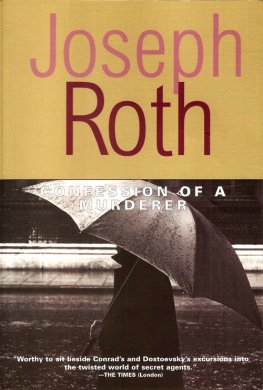IN THE SMALL town of Progrody there lived a coral merchant who was known far and wide for his honesty and the reliability and quality of his wares. The farmers wives came to him from far-distant villages when they needed an ornament for some festive occasion. There were other coral merchants who were closer at hand, but they knew that from them they would only get cheap stuff and no-good tat. And so, in their rickety little carts they traveled many versts to Progrody and the renowned coral merchant, Nissen Piczenik.
They tended to come on market days, which were Mondays and Thursdays for horses and pigs respectively. While their menfolk were busy sizing up the animals, the women would go off together in little groups, barefooted, their boots dangling over their shoulders, with their brightly colored scarves that shone even on rainy days, to the house of Nissen Piczenik. The tough bare soles of their feet pattered happily along the hollow-planked wooden pavement, and down the broad cool passage of the old building where the merchant lived. The arching passageway led into a quiet yard where soft moss sprouted among the uneven cobblestones, and the occasional blade of grass raised its head in summer. Here Nissen Piczeniks flock of chickens came joyfully out to meet them, the cocks leading the way with their proud red combs as red as the reddest of the corals.
They would knock three times on the iron door with the iron knocker. At that, Piczenik would open a little grille cut into the door, see who was outside, and draw the bolt and allow the farmers wives to come in. In the case of beggars, traveling musicians, gypsies, and men with dancing bears, he would merely pass a coin out through the grille. He had to be very careful because on each of the tables in his large kitchen and his parlor he had fine corals in large, small, and middle-sized heaps, various races and breeds of corals all mixed up, or already sorted according to color and type. He didnt have so many eyes in his head that he could see what every beggar was up to, and Piczenik knew how seductively poverty led to sin. Of course, some prosperous farmers wives sometimes stole things, too; for women are always tempted to help themselves illicitly and clandestinely to an item of jewelry they can comfortably afford to buy. But where his customers were concerned, the merchant would tend to turn a blind eye, and he included a few thefts in the prices he charged for his wares anyway.
He employed no fewer than ten threaders, pretty girls with keen eyes and soft hands. The girls sat in two rows either side of a long table, and fished for the corals with their fine needles. They put together beautiful regular necklaces, with the smallest corals at either end, and the largest and most brilliant in the middle. As they worked, the girls sang. On the hot, blue, sunny days of summer, when the long table where the women sat threading was set up outside in the yard, you could hear their summery voices all over the little town, louder than the twittering skylarks and the chirruping of the crickets in the gardens.
Most people, who only know corals from seeing them in shop windows and displays, would be surprised to learn how many different varieties of them there are. For a start, they can be polished or not; they can be trimmed in a straight line or rounded off; there are thorny and sticklike corals that look like barbed wire; corals that gleam with a yellowish, almost a whitishred, like the rims of tea-rose petals; pinkish-yellow, pink, brick red, beet red, cinnabar red corals; and finally there are those corals that look like hard, round drops of blood. There are rounds and half-rounds; corals like little barrels and little cylinders; there are straight, crooked, and even hunchbacked corals. They come as stars, spears, hooks, and blossoms. For corals are the noblest plants in the oceanic underworld; they are like roses for the capricious goddesses of the sea, as inexhaustible in their variety as the caprices of the goddesses.
As you see, then, Nissen Piczenik didnt have a shop as such. He ran his business from home, which meant that he lived among the corals night and day, summer and winter, and as all the windows in his parlor and kitchen opened onto the courtyard and were protected by thick iron bars, there was in his apartment a beautiful and mysterious twilight that was like the light under the sea, and it was as though corals were not merely traded here, but that this was where they actually grew. Furthermore, thanks to a strange and canny quirk of nature, the coral merchant Nissen Piczenik was a red-haired Jew with a copper-colored goatee that looked like a particular kind of reddish seaweed, which gave the man a striking resemblance to a sea god. It was as though he made his corals himself, or maybe sowed and reaped them in some way. In fact, so strong was the association between his wares and his appearance that in the small town of Progrody he was known not by his name, which had gradually fallen into disuse, but by his calling. For instance, people would say: Here comes the coral merchant as though there were none but him in all the world.
And in fact, Nissen Piczenik did feel a kind of affinity or kinship with corals. He had never been to school, couldnt read or write, and was only able to mark his name crudely; but he lived with the wholly unscientific conviction that corals were not plants at all, but living creatures, a kind of tiny reddish sea animal, and no professor of marine science could have convinced him otherwise. Yes, for Nissen Piczenik corals remained alive, even when they had been sawn, cut, polished, sorted, and threaded. And perhaps he was right. Because with his own eyes he had seen how on the breasts of sick or poorly women his reddish strings of corals would begin to fade, while on the breasts of healthy women they kept their luster. In the course of his long experience as a coral merchant, he had often observed how corals that for all their redness had grown pale from lying in cupboards, once they were put round the neck of a healthy and beautiful young peasant woman, would start to glow as if they drew nourishment from the womans blood. Sometimes, the merchant was offered corals to buy back, and he recognized the stones he had once threaded and cherished and he could tell right away whether the woman who had worn them had been healthy or unhealthy.
He had a very particular theory of his own regarding corals. As already stated, he thought of them as sea creatures, who as it were, out of prudence and modesty, only imitated plants and trees so as to avoid being attacked and eaten by sharks. It was every corals dream to be plucked by a diver and brought to the surface, to be cut, polished, and threaded, so as finally to be able to serve the purpose for which it had been created: namely to be an ornament on a beautiful peasant woman. Only there, on the fine, firm white throat of a woman, in close proximity to the living artery sister of the feminine heart did they revive, acquire luster and beauty, and exercise their innate ability to charm men and awaken their ardor. Now, the ancient god Jehovah had created everything, the earth and the beasts who walked upon it, the sea and all its creatures. But for the time being namely, until the coming of the Messiah he had left the supervision of all the animals and plants of the sea, and in particular of corals, to the care of the Leviathan, who lay curled on the seabed.
It might be supposed that the trader Nissen Piczenik had a reputation as something of an eccentric. Nothing could be further from the truth. Piczenik lived quietly and unobtrusively in the small town of Progrody, and his tales of corals and the Leviathan were treated with complete seriousness, as befitting the opinion of an expert, a man who must know his business, just as the haberdasher knew his German percale from his corduroy, and the tea merchant could tell the Russian tea from the famous firm of Popov from the English tea supplied by the equally famous firm of Liptons of London. All the inhabitants of Progrody and its surroundings were convinced that corals are living creatures, and that the great fish Leviathan was responsible for their well-being under the sea. There could be no question of that, since Nissen Piczenik said so himself.

















